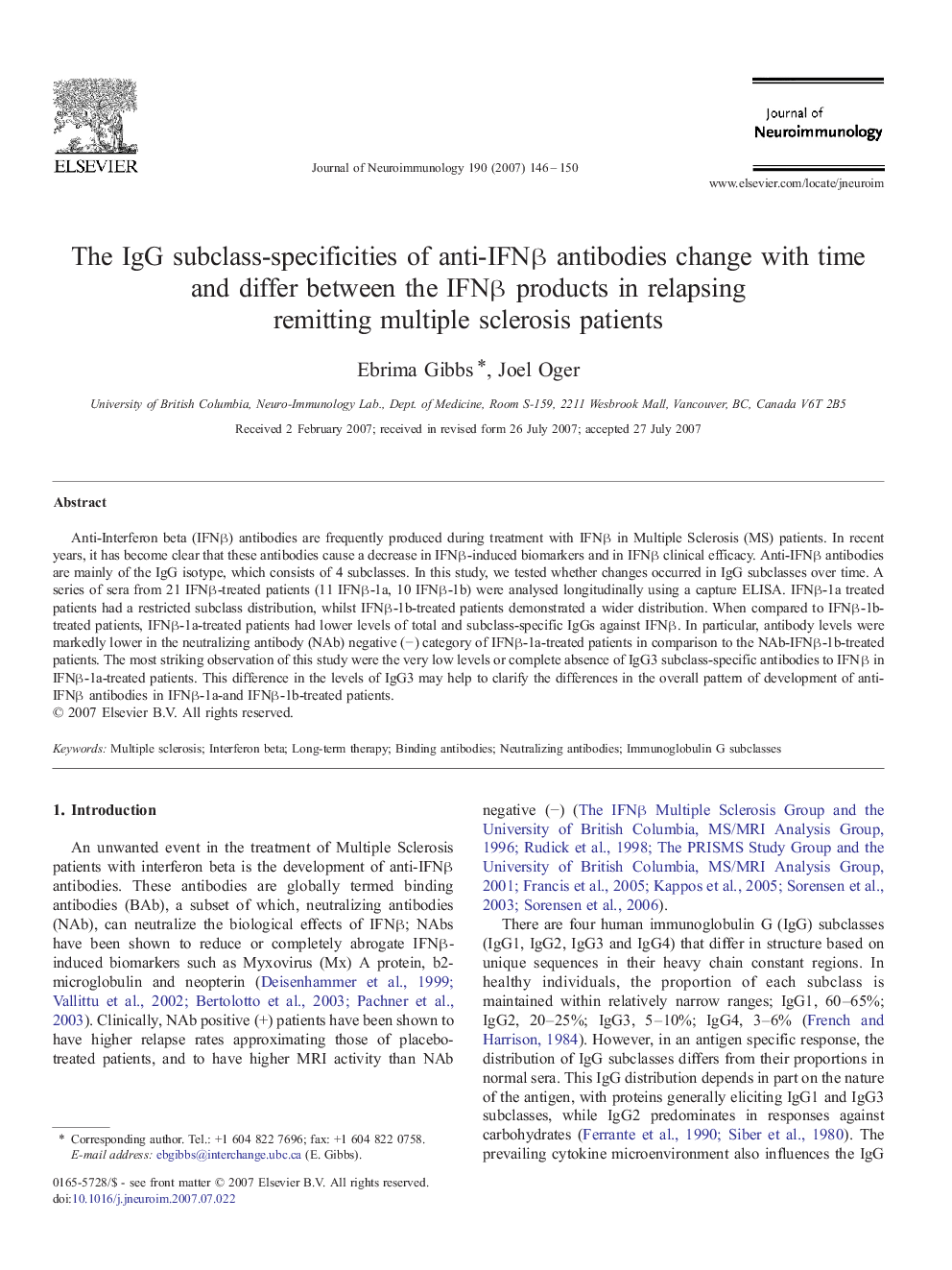| Article ID | Journal | Published Year | Pages | File Type |
|---|---|---|---|---|
| 3065787 | Journal of Neuroimmunology | 2007 | 5 Pages |
Abstract
Anti-Interferon beta (IFNβ) antibodies are frequently produced during treatment with IFNβ in Multiple Sclerosis (MS) patients. In recent years, it has become clear that these antibodies cause a decrease in IFNβ-induced biomarkers and in IFNβ clinical efficacy. Anti-IFNβ antibodies are mainly of the IgG isotype, which consists of 4 subclasses. In this study, we tested whether changes occurred in IgG subclasses over time. A series of sera from 21 IFNβ-treated patients (11 IFNβ-1a, 10 IFNβ-1b) were analysed longitudinally using a capture ELISA. IFNβ-1a treated patients had a restricted subclass distribution, whilst IFNβ-1b-treated patients demonstrated a wider distribution. When compared to IFNβ-1b-treated patients, IFNβ-1a-treated patients had lower levels of total and subclass-specific IgGs against IFNβ. In particular, antibody levels were markedly lower in the neutralizing antibody (NAb) negative (â) category of IFNβ-1a-treated patients in comparison to the NAb-IFNβ-1b-treated patients. The most striking observation of this study were the very low levels or complete absence of IgG3 subclass-specific antibodies to IFNβ in IFNβ-1a-treated patients. This difference in the levels of IgG3 may help to clarify the differences in the overall pattern of development of anti-IFNβ antibodies in IFNβ-1a-and IFNβ-1b-treated patients.
Keywords
Related Topics
Life Sciences
Immunology and Microbiology
Immunology
Authors
Ebrima Gibbs, Joel Oger,
